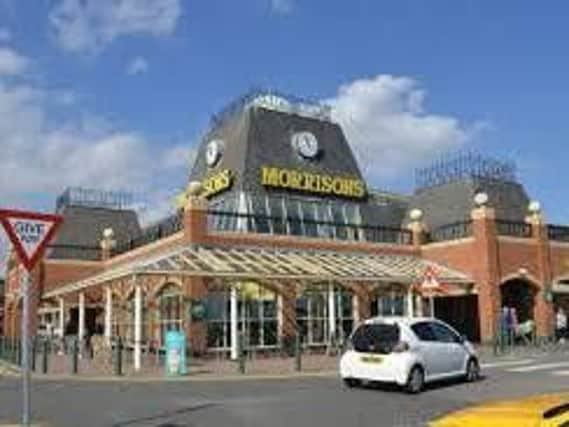Morrisons sees strongest growth in five years


The latest data from Kantar Worldpanel showed the Bradford-based grocer has beaten its big four rivals with sales growth of 2.6 per cent over the past 12 weeks. There was also better news for Leeds-based Asda, which saw its '‹'‹best performance since November 2014'‹ with a sales decline of just 0.8'‹ per cent.'‹ Fraser McKevitt, head of retail and consumer insight at Kantar Worldpanel, said: "Morrisons is doing much better. It is getting growth from across the store, not just one promotional category."Its biggest growth is in fresh chilled. If you can grow fresh chilled, it's the biggest consideration when people shop with you. Morrisons is growing its stores faster than competitors. A lot of it is getting the basics right and getting people to shop more."Morrisons has also benefited from growth in online shopping from a low level as it entered the market years after its rivals.Mr McKevitt said that Asda is also seeing an improvement and this could be the turning point for the supermarket chain, which has lost shoppers to the discounters."It wouldn't be a surprise if Asda was in positive territory next time. Asda is in a 'fix the basics' mode. It hasn't done the big predicted price cuts and it's up against relatively soft comparatives," he said.Kantar Worldpanel said grocery like-for-like inflation has doubled since last month to stand at 1.4'‹ per cent'‹ '‹over the past 12 weeks, '‹after 5 per cent plus price rises in staples such as butter, tea and fish."We are going to have to get used to inflation," said Mr McKevitt."We think it will climb to 3 per cent in the next few months. Then it's unclear. There are competitive pressures on pricing. The major grocers know they allowed prices to rise too quickly in 2010/11. They will do everything to not get the blame from consumers and will want to help customers to manage."He said that grocery inflation rose 9 per cent in 2010 so in the longer term context, the current price increases are fairly minimal."When prices go up, it changes how people shop. They look for cheaper products, cheaper stores and buying on promotion."Kantar Worldpanel said that staples such as butter, tea and fish all saw prices rise by more than 5 per cent during the past 12 weeks, and fruit and vegetables - many of which are imported - also saw an increase in price. Fresh lamb, chilled pizza bases and instant coffee also saw price rises.However '‹crisps, bacon, eggs and spirits saw prices fall - partly due to heavy promotions in competitive markets and supply changes in products like bacon.Kantar Worldpanel said supermarket sales grew at their fastest rate since June 2014 - up by 2.3 per cent compared with the same time last year.Lidl became Britain's fastest-growing supermarket during the past 12 weeks, with sales up by 13 per cent, while Aldi grew almost as quickly, increasing sales by 12.9 per cent to reach a record market share of 6.3 per cent.Mr McKevitt said that while consumers may be starting to feel a very slight pinch, increased inflation has led to overall market growth. Combined sales at the UK's four largest supermarkets (Tesco, Sainsbury's, Asda and Morrisons) increased by 0.5 per cent year on year."This is a timely reminder that, despite the huge interest in the discounters during recent years, the big four remain a force to be reckoned with," he said."They still hold just over 70 per cent of the market, with almost 99 per cent of the population shopping in a Tesco, Sainsbury's, Asda or Morrisons during the latest quarter."Tesco increased sales for the sixth period in a row, although this was not enough to stop its market share slipping by 0.5 percentage points to 27.9 per cent.